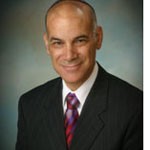By Rabbi Leonard Rosenthal

SAN DIEGO–For years CNN.com has been my homepage. I like to check out national and international news at the beginning of my work day. (The second web page I always check is haaretz.com.)
One article in particular caught my eye this morning: “17 Recent Political Sex Scandals.” (http://www.cnn.com/2011/POLITICS/05/17/political.sex.scandals/index.html?hpt=Sbin)
The article highlights the most broadly publicized local and international sexual discretions of well-known and powerful political leaders during the last decade. The most recent are former Governor Arnold Schwarzenegger’s fathering of a child with his housekeeper during his marriage to Maria Shriver, and IMF Managing Director Dominique Strauss-Kahn’s arrest on rape charges in New York.
I have never understood such selfish, self centered, narcissistic, and ultimately self-destructive behavior. Why would these men (and it’s almost always men) risk everything for a few moments of momentary pleasure?
In an interview published in The Observer, Dr. John Gray, author of Men Are from Mars, Women Are from Venus, blamed it on hormones:
“His theory is that powerful men have higher than average levels of testosterone, which they seek to ‘top up’ when their reserves become depleted. One way they do that is to have an affair. According to Gray, long-term relationships generate oxytocin, dubbed the ‘love hormone,’ which encourages bonding between couples and helps to lower female stress levels. But that benefit comes at a price for alpha male partners.
“With oxytocin and alpha men, as the women’s stress level goes down when she gets oxytocin from a loving monogamous relationship, the man’s testosterone level is going down, so he’s getting more stressed and more inclined to seek out risky behaviour to push it back up again. The concept is that intimacy can lower a man’s sexual drive.” (The Guardian, The Observer, May 22, 2011)
Gray continues, however, that his explanation is not an excuse:
“Gray insists he is not saying men are enslaved by their hormones and that divides can and should be bridged. ‘Men are basically wired up to be polygamous but they are also wired up to be violent. We learn to sublimate these urges and to civilize the experience. If I see an attractive woman, I use my brain to remember my wife, and my arousal goes back to my wife – you train yourself with that, you control your urges. That’s why I’ve been married for 26 years.'”
Although the Rabbis knew nothing about hormones, they knew a lot about human nature and psychology. They taught that all human beings are born with a yetzer tov, a good inclination, and a yetzer ra, an evil inclination.
All human beings have natural urges which at time encourage them to act in ways which are detrimental to themselves as well as others, as well as in beneficent ways. We are not, however, enslaved to our natural inclinations. God has given us control over them. It is our responsibility to make sure that our yetzer ra never overpowers our yetzer tov, which would lead to narcissistic and destructive behavior.
The Biblical commentator Dan Madniel was intrigued by one of the opening verses of this week’s parasha, B’midbar. When God instructed Moses to take a census of the Israelites he told him to select Israelites to help him with the task: “Associated with you shall be a man from each tribe, each one the head of his ancestral house.” (Numbers, 1:2)
Dan Madniel noticed that God does not instruct Moses to take a leader from each tribe, but rather a man. He explains the choice of words in the following way: The way of the world is that human beings are basically good…until they are elevated to positions of power. Once empowered, they believe they have license to act in beastly ways.
That is why the Torah emphasized that Moses should choose men and not leaders to help him. Even though these men were the heads of their ancestral houses, their positions had not gone to their heads and they still behaved as menschen (honorable, respectful, and noble human beings). They continued to act in the interest of the community instead of their own.”
We Americans often laud persons of political position, wealth, and celebrity as our heros and role models. The Talmud, however, suggests another definition of whom we should admire as a model of strength and fortitude. It asks, “Who is the one who is truly powerful?” and answers, “The one who is able to control his or her inclinations.”
*
Rabbi Rosenthal is spiritual leader of Tifereth Israel Synagogue in San Diego. He may be contacted at leonard.rosenthal@sdjewishworld.com